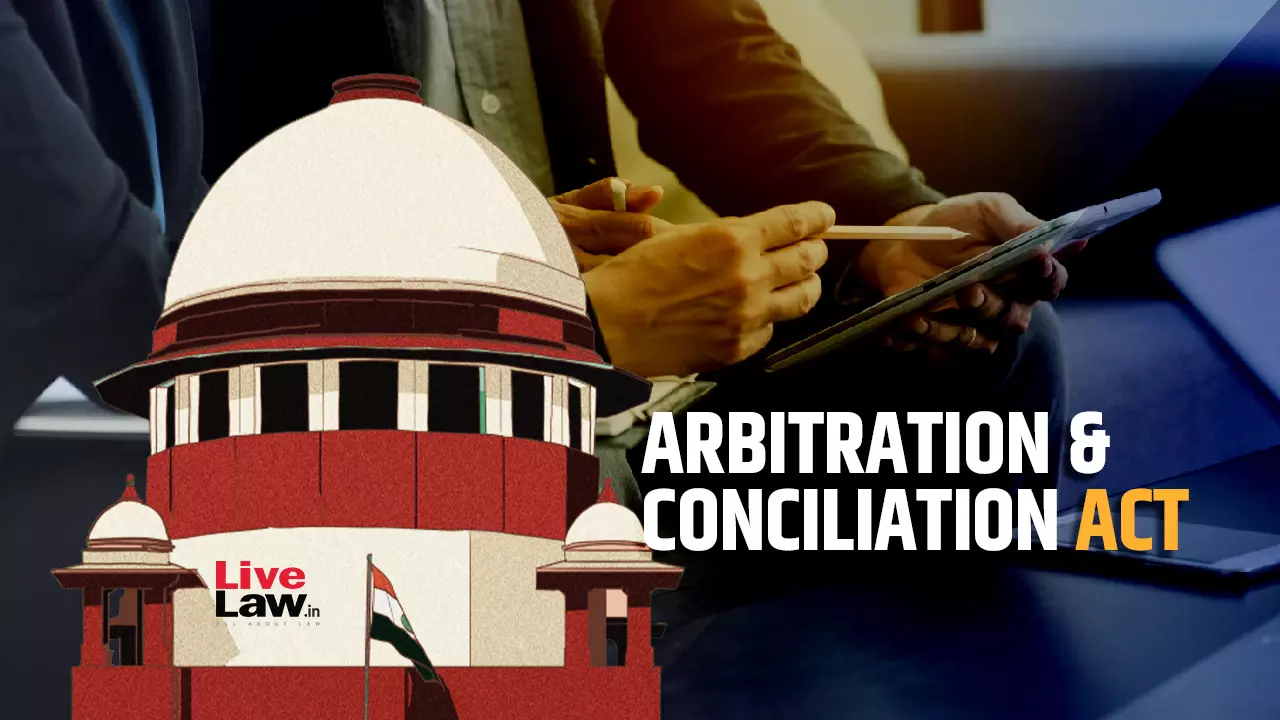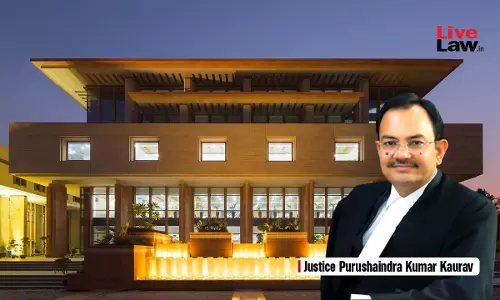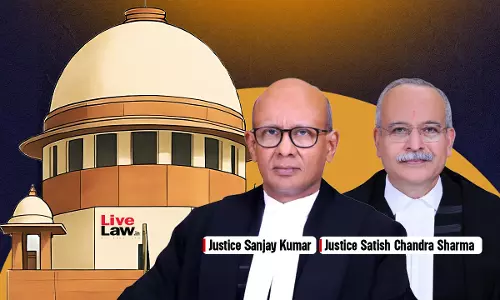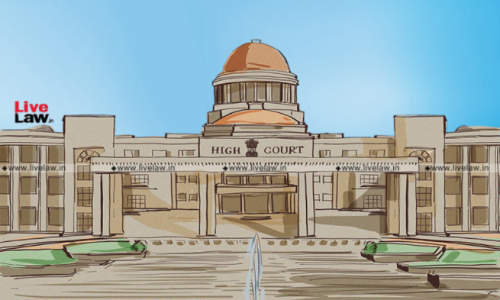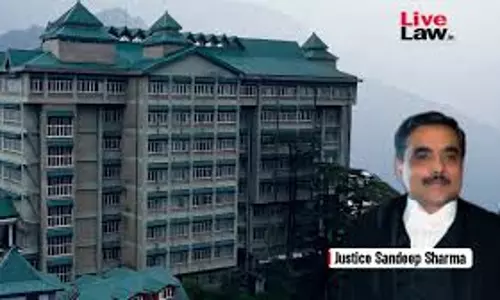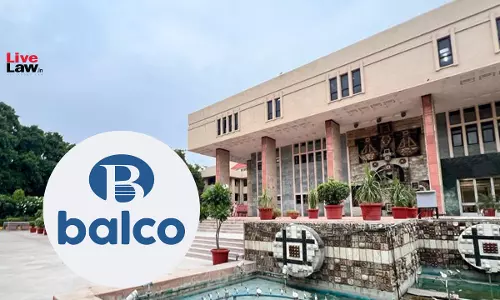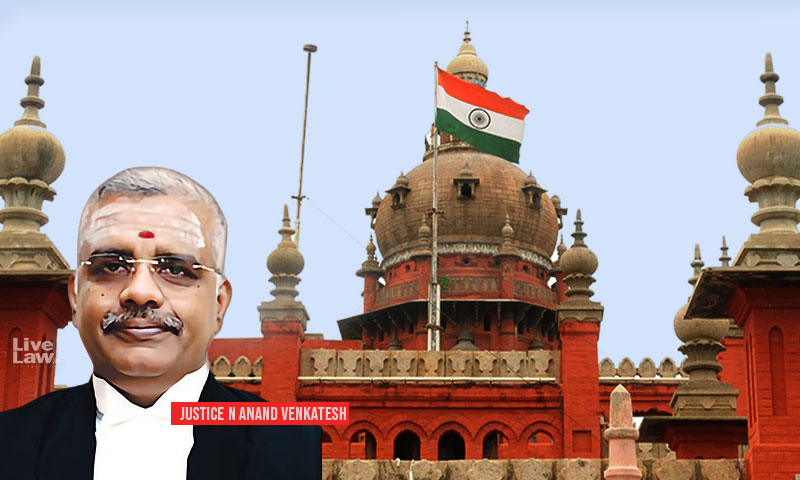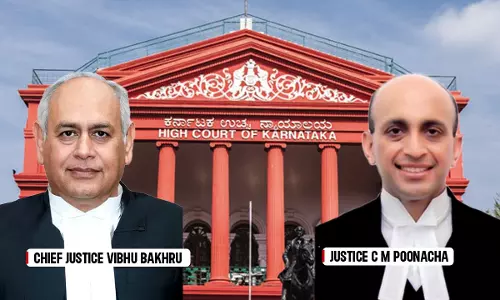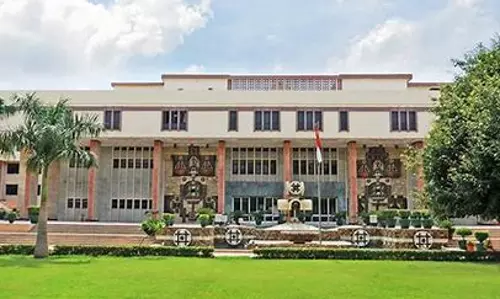Arbitration
NCLT Mumbai Approves Merger Of Snack Brand 'Dinshaws' With Its Dairy Business
The National Company Law Tribunal (NCLT) at Mumbai on Monday approved the merger of Dinshaws Snacks & Foods Private Limited with Dinshaw's Dairy Foods Private Limited, bringing the popular snack brand and its dairy arm under a single company.A coram of Judicial Member K R Saji Kumar and Technical Member Anil Raj Chellan in an order passed on November 3 observed that the scheme was fair...
Arbitration | Objections To Arbitral Award Execution Maintainable Only If Decree Is Void Or Without Jurisdiction : Supreme Court
The Supreme Court on Monday (November 3) ruled against the stalling of the enforcement of an arbitral award at the execution stage, reiterating that the objections against the execution of an award lie in a narrow compass, such as only when a decree is inherently void or passed without jurisdiction. A bench of Justices Sanjay Kumar and K.V. Viswanathan upheld the Delhi High Court's...
Order Passed By Emergency Arbitrator Under DIAC Rules 2023 Can Only Remain In Operation For 90 Days: Delhi High Court
The Delhi High Court, while hearing an appeal u/s 37 of the A&C Act filed against the the Award dated 11.12.2024 (“Impugned Award”) passed by the Emergency Arbitrator under the Delhi International Arbitration Center (Arbitration Proceedings) Rules, 2023 (“Rules of 2023”) observed that the terms 'Emergency Arbitrator' and 'Arbitral Tribunal' are not interchangeable. Rule...
Transactions Purely Commercial; Public Trust Doctrine Can't Defeat Limitation: Madras HC Dismisses GAIL Appeals In ₹246 Cr Dispute
In an important ruling for the natural gas sector, the Madras High Court Bench of Justices G Jayachandran and Mummineni Sudheer Kumar denied appeals by GAIL (India) Limited against five natural gas supplier companies in arbitrations aggregating to Rs. 246 crores, observing that natural gas transactions are commercial and GAIL could not invoke the public trust doctrine to escape...
Arbitral Award In One Proceeding Can Be Used As Evidence In Another: Allahabad High Court Upholds ₹126 Cr Award To Adani
The Allahabad High Court has held that an arbitral award given in one proceedings can be used as evidence in other arbitral proceedings, though the weightage given to it may vary on case to case basis.While dealing with an arbitral award of more than Rs. 126 crores in favour of Adani Enterprises Ltd., the bench of Chief Justice Arun Bhansali and Justice Jaspreet Singh held“An Arbitral...
Casual Absence Of Govt Officials Not “Sufficient Cause” To Condone Delay In Challenging Arbitral Award: HP High Court
The Himachal Pradesh High Court has dismissed an application filed by the Himachal Pradesh State Electricity Board seeking condonation of delay in filing objections against an arbitral award passed in favour of HCL Infotech Ltd., holding that bureaucratic delays and internal movement of files do not constitute sufficient cause for delay.Rejecting the State's contention, the Court remarked...
Balco Disinvestment: Delhi High Court Upholds Arbitral Award Voiding Centre & Vedanta Shareholder's Pact
After over a decade of legal tussle, the Delhi High Court recently upheld an arbitral award declaring the Shareholders' Agreement (SHA) between Vedanta Limited (then Sterlite Industries) and the Union of India void, which had given Vedanta the exclusive right to buy the government's remaining 49% stake in Bharat Aluminium Company Limited (BALCO) after a three-year lock-in period. The...
Petition U/S 34 A&C Act Filed With Deficit Court Fee Is Non-Est Unless Paid Within Limitation Period: Madras High Court
The Madras High Court held that filing of a petition with deficit court fee does not amount to proper presentation. If the entire court fee is not deposited within the limitation period under section 34(3) Arbitration and Conciliation Act, 1996 (Arbitration Act), the court is divested of its power to condone the delay. Justice N. Anand Venkatesh held that "filing of a petition...
Test Of Prejudice Irrelevant When Tribunal Is Constituted Without Consent Of JV Partner: Madras High Court Sets Aside Arbitral Award
The Madras High Court set aside an arbitral award passed against M/s Nilakantan & Brothers Constructions Pvt. Ltd. (“the petitioner”) on the ground that since the arbitral tribunal was constituted without obtaining the consent of a Joint Venture Partner, it lacked jurisdiction. The court further held that the appointment cannot be validated merely on the ground that no...
Appeal Against Order U/S 39(2) Arbitration Act Is Not Maintainable U/S 13 Commercial Courts Act: Karnataka High Court
The Karnataka High Court dismissed an appeal under section 37 of the Arbitration and Conciliation Act, 1996 (Arbitration Act), holding that no appeal under section 13 of the Commercial Courts Act lies against an order passed under section 39(2) of the Act. The court further held that the appeal under section 13 of the Commercial Courts Act is maintainable against those orders...
Award Passed After Expiry Of Arbitrator's Mandate Is Non-Est, Court Can't Extend Mandate Post-Award: Delhi High Court
The Delhi High Court held that an award passed after expiry of the arbitrator's mandate is non-est and unforceable holding that the court has no power to extend the mandate post award if no application seeking extension of the mandate was pending before the award was passed. A Division bench of Justice V. Kameswar Rao and Justice Vinod Kumar held that the award becomes operational...




